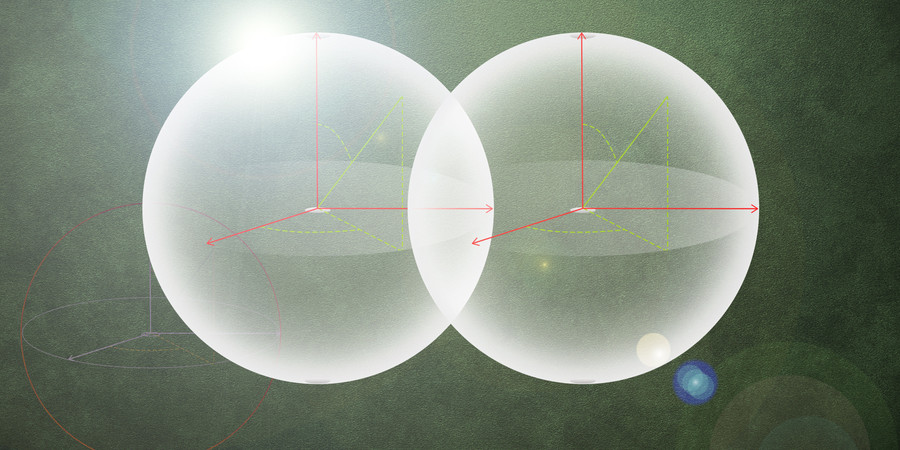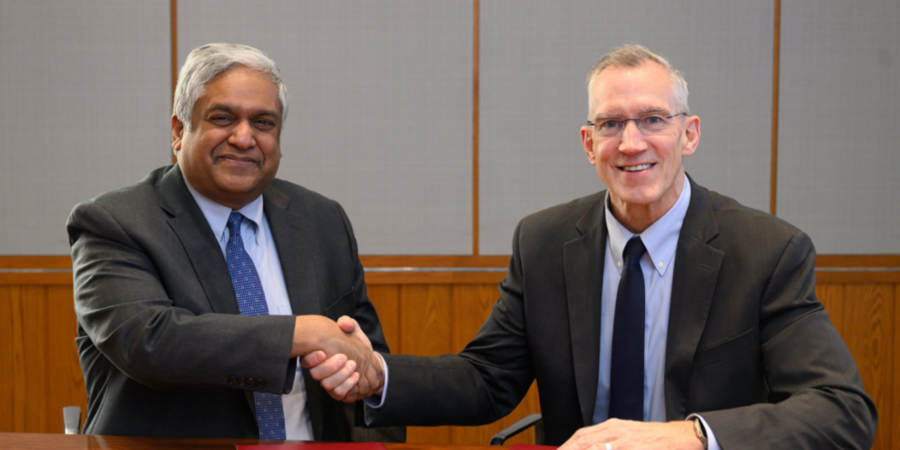The MIT AI Hardware Program is an academia-industry initiative between the MIT School of Engineering and MIT Schwarzman College of Computing. We work with industry to define and bootstrap the development of translational technologies in hardware and software for the AI and quantum age.
Our annual symposium includes a keynote talk from professor Elsa Olivetti, reviews of the current project portfolio, presentations on new projects, and a networking reception featuring a poster session and interactive demos.
10:00 - 10:10
Year in Review & the Year Ahead
Program Co-Leads
Jesús del Alamo, Donner Professor; Professor, Electrical Engineering and Computer Science; MacVicar Faculty Fellow
Aude Oliva, Director of Strategic Industry Engagement, MIT Schwarzman College of Computing; CSAIL Senior Research Scientist
10:10 – 11:30
Project Reviews
A 14-nm Energy-Efficient and Reconfigurable Analog Current-Domain In-Memory Compute SRAM Accelerator
Aya Amer, Postdoctoral Associate, Research Laboratory of Electronics
Wafer-Scale 2D Transition Metal Dichalcogenides for Neuromorphic Applications
Jiadi Zhu, PhD Candidate, Electrical Engineering and Computer Science
Increasing Architectural Resilience to Small Delay Faults
Peter Deutsch and Vincent Ulitzsch, PhD Candidates, Electrical Engineering and Computer Science
CIRCUIT: A Benchmark for Circuit Interpretation and Reasoning Capabilities of LLMs
Yan Xu, Ph.D. Candidate, Electrical Engineering and Computer Science
Efficient Large Language Models and Generative AI
Song Han, Associate Professor, Electrical Engineering and Computer Science
11:40 – 12:00
UROP (Undergraduate Research Oppurtunites Program) Pitches
PERE-Chains: AI-Supported Discovery of Privilege Escalation and Remote Exploit Chains
Cristián Colón, Undergraduate, Engineering and Computer Science
Computing with Heat
Caio Silva, Undergraduate, Physics
Simulation of Optical Phase Change Modulator for Analog Photonic Applications
Anthony Donegan, Undergraduate
Ferroelectric Memory Devices for AI Hardware
Tyra Espedal, Undergraduate, Physics
1:00 – 1:30
Keynote
The Climate and Sustainability Implications of Generative AI
Elsa Olivetti, Professor, Materials Science and Engineering
1:30 – 2:30
Highlights: Prospective New Projects
Hardware-efficient Neural Architectures for Language Modeling
Lucas Torroba Hennigen, PhD Candidate, Computer Science and Artificial Intelligence Laboratory
Ferroelectric AI Hardware: Overcoming Conventional Paradigms and Scalability Limits
Suraj Cheema, Assistant Professor, Materials Science and Engineering & Electrical Engineering and Computer Science
Analog Computing with Inverse-Designed Metastructures
Giuseppe Romano, Research Scientist, Institute for Soldier Nanotechnologies
Magnetic Tunnel Junction for Stochastic Neuromorphic Computing
Luqiao Liu, Associate Professor, Electrical Engineering and Computer Science
Compressing (in) the Wild: Continual Fine-tuning of Autoencoders for Camera Trap Image Compression
Timm Haucke, PhD Candidate, Electrical Engineering and Computer Science
Declarative Optimization for AI Workloads
Michael Cafarella, Research Scientist, Computer Science and Artificial Intelligence Laboratory (CSAIL)
2:30 – 3:30
Research Showcase
A Unified Framework for Sparse Plus Low-Rank Matrix Decomposition for LLMs
Mehdi Makni, PhD Candidate, MIT Operations Research Center
Hardware-Aware Algorithms for Large Neural Network Compression
Xiang Meng and Ryan Lucas, PhD Candidates, MIT Operations Research Center
Extracting Cellular Automaton Rules from Biological Systems with Generative Pretrained Transformers
Jaime Berkovich, PhD Candidate, Materials Science and Engineering
How Much Potential is There for Further GPU Progress?
Emanuele Del Sozzo, Research Scientist, Computer Science & Artificial Intelligence Lab
In-Memory Sparsity: Enable Efficient Unstructured Element-Wise Sparse Training from the Bottom
Hongkai Ning, Postdoctoral Associate, Research Laboratory of Electronics
Learning to Keep a Promise: Scaling Language Model Decoding Parallelism with Learned Asynchronous Decoding
Tian Jin, PhD Candidate, Electrical Engineering and Computer Science
SVDQuant: Absorbing Outliers by Low-Rank Components for 4-Bit Diffusion Models
Muyang Li and Yujun Lin, PhD Candidates, Electrical Engineering and Computer Science
Computing with Heat
Caio Silva, Undergraduate, Physics
Explore
MIT Engineers Advance Toward a Fault-tolerant Quantum Computer
Adam Zewe | MIT News
Researchers achieved a type of coupling between artificial atoms and photons that could enable readout and processing of quantum information in a few nanoseconds.
The Road to Gate-All-Around CMOS
Monday, April 14, 2025 | 10:00 AM to 11:00 AM
In-Person
Haus Room (36-428)
50 Vassar Street Cambridge, MA
Collaborating to Advance Research and Innovation on Essential Chips for AI
Microsystems Technology Laboratories
Agreement between MIT Microsystems Technology Laboratories and GlobalFoundries aims to deliver power efficiencies for data centers and ultra-low power consumption for intelligent devices at the edge.




